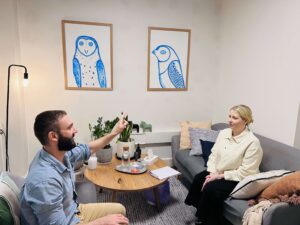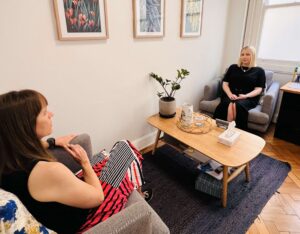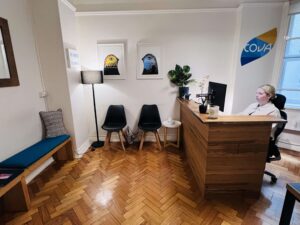It’s common for people to come to therapy to stop a behaviour – behaviours such as drinking, gambling, binge eating, smoking, harming oneself etc Often we think of psychology sessions or psychologists as being able to offer particular skills to help reduce or avoid these behaviours. That is true, but usually there is another stage they will suggest first. And that is building understanding or insight.
Building insight is super important. You can learn all the skills but if you don’t know when or how best to use them, they can be somewhat redundant. So either on your own or talking with someone you trust, think about what it is that you want to stop doing and then think about the last time that you did this behaviour. Once you have got that scenario in your mind, try and answer the following questions:
What is the behaviour? Write a description of the problem behaviour. Try to do so without judgement and without minimising. Add as much detail as you can. For example, instead of saying, Spent too much money, instead say Spent $526 in a 2 hour period.
What was happening before you did this behaviour? Now this question can normally be split into two parts.
1. The first part is what made you vulnerable? What was happening in the days leading up to this problem behaviour? Were you stressed/emotional about something, were you physically unwell, were there interpersonal factors playing out…what were the difficult situations going on in your life?
2. The second part is what was the trigger? What was happening in the hours leading up to this problem behaviour that you think set of the sequence of events that led to this particular problem behaviour? For example did you have a fight with your Mum or was there a drama at work?
What was the sequence of events? From the trigger onwards, try to write down everything you can remember. This includes:
· any thoughts
· any emotions
· any physical sensations in your body
· any urges
· and any actions
Try to reflect on this in as much detail as possible. All that was happening for you, just before and as you were engaging in the problem behaviour.
What were the consequences of your problem behaviour? Try to keep this one pretty broad. It might be something practical, or it might be how you felt, or how other people reacted, or all of these.
The more times you do this, the more understanding you have of yourself and this particular problem behaviour. Sometimes, what people notice is the first time they do this, they don’t remember much. They don’t remember maybe what they were thinking or what they were feeling. But as they keep doing it, they are able to write more down and gradually they develop more and more insight. The fantastic thing about writing all this down, is that we can then go back, with a different coloured pen maybe, and start to think about the points in time when we could have changed things, or used a different skill, or sought support – behaviours which might have altered or slowed or even stopped the sequence of events and therefore the problem behaviour. In this way, building awareness can not only increase your understanding of yourself and the problem behaviour, it is also an important step which can lead to change!















